Global Impact of India's Rice Export Restrictions
2024-06-19

India's rice export restrictions have created significant disruptions in global markets. Countries that rely on Indian rice, particularly in South and Southeast Asia and sub-Saharan Africa, are experiencing shortages and higher prices. These regions are now seeking alternative suppliers to meet their needs.
The restrictions have led to a rise in global rice prices, as supply from other major exporters like Vietnam and Thailand is also constrained due to adverse weather conditions. This has forced many importing countries to explore new trade partnerships and invest in local rice production to reduce dependency on imports.
- Shortages and higher prices in dependent regions
- Seeking alternative suppliers
- Investment in local production
In the long term, increased investment in rice production and infrastructure in importing countries could lead to a more balanced global rice market.
The impact on global rice consumers has been profound. In sub-Saharan Africa, governments are implementing measures to boost local production and secure alternative import sources. These efforts are crucial for ensuring food security in the face of ongoing market volatility.
While the current situation is challenging, it also presents opportunities for innovation and collaboration. By improving agricultural practices and diversifying supply chains, stakeholders can create a more resilient global rice market.
